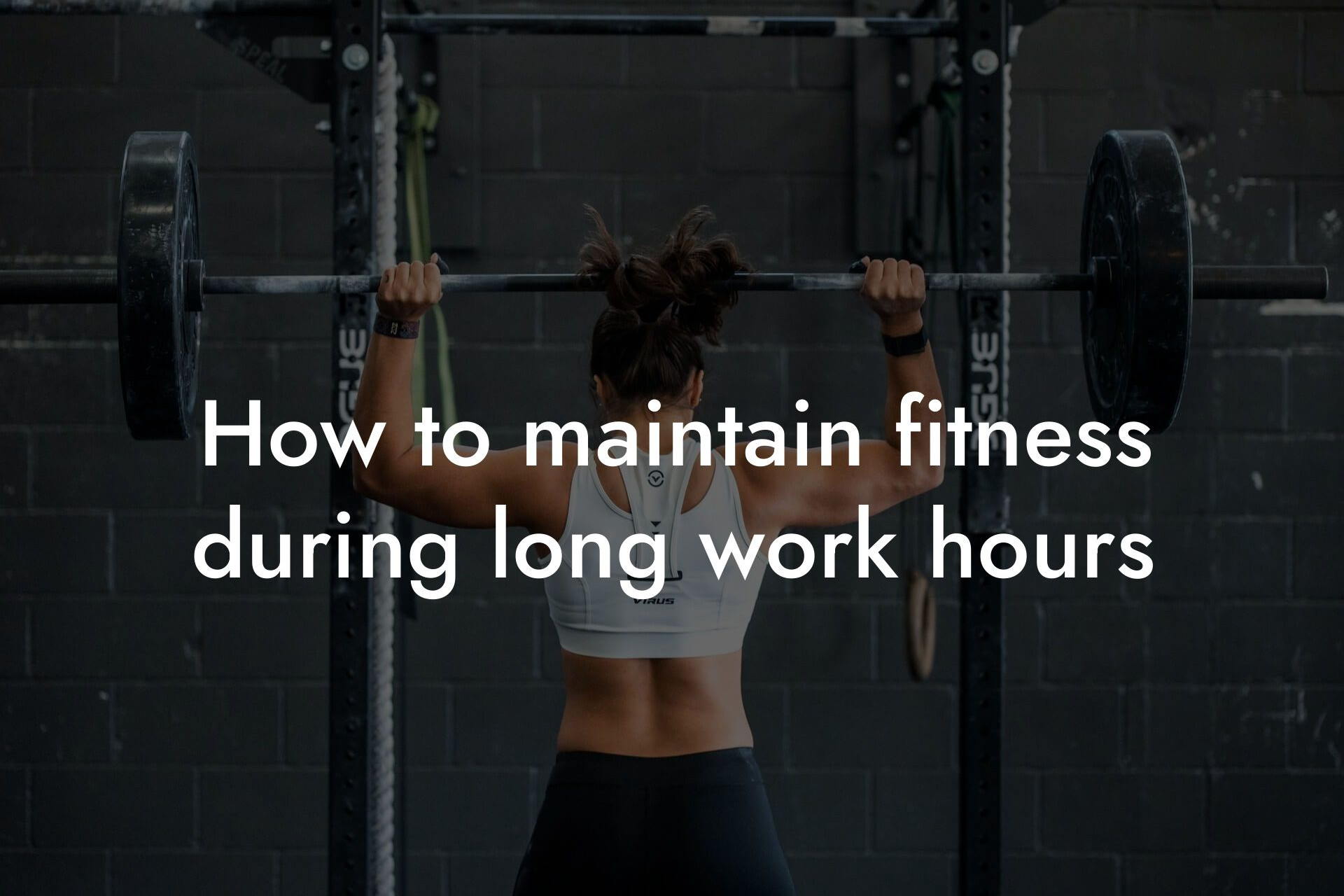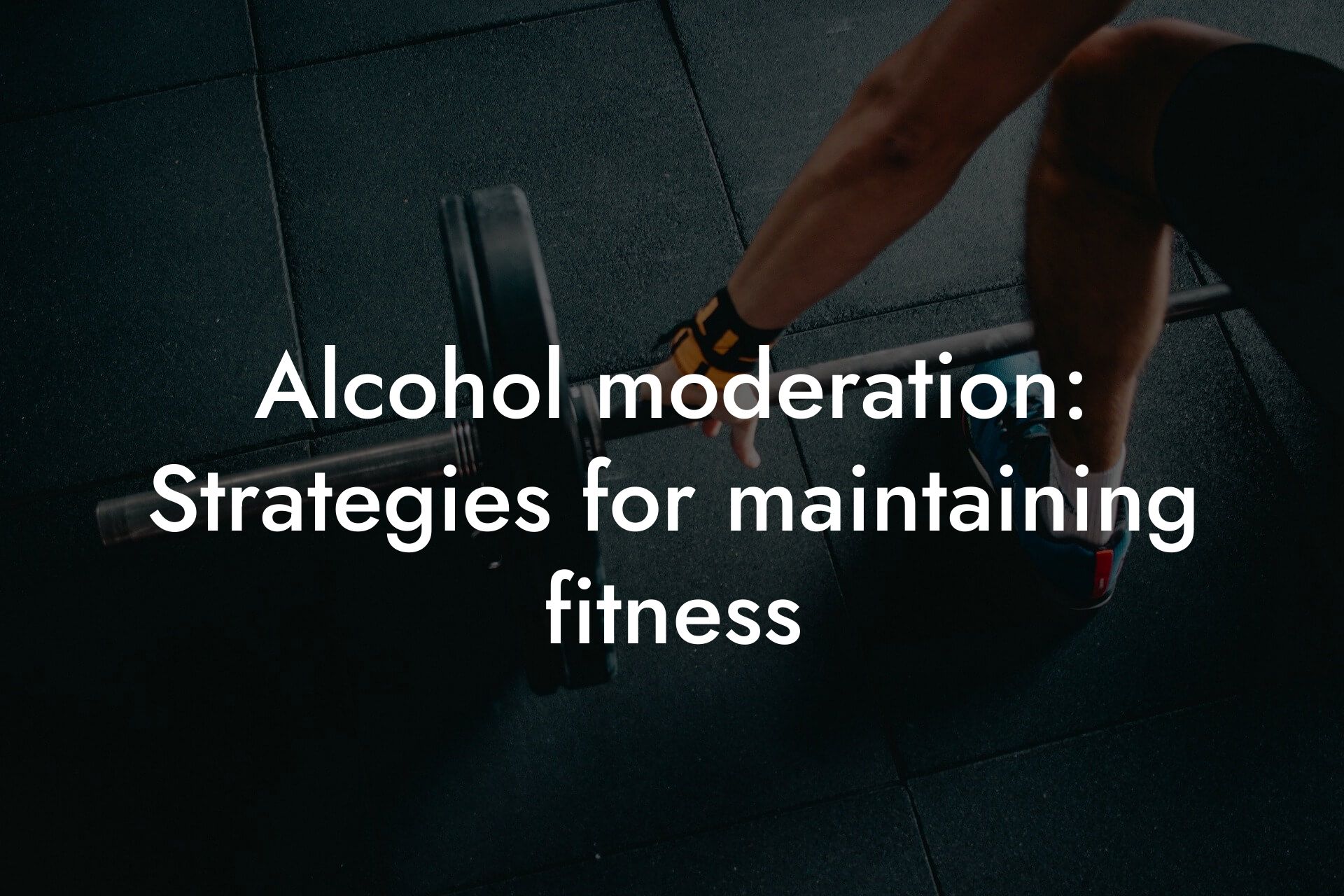As a high-earning professional, you understand the importance of maintaining a healthy and fit physique. Not only does it boost your confidence and energy levels, but it also enables you to perform at your best in your personal and professional life. At Tano Performance Group, we believe that achieving lifelong fitness is not just about quick fixes or fad diets, but about adopting sustainable habits that promote overall well-being. In this article, we will explore the essential habits you need to cultivate to achieve lifelong fitness and take your business to the next level.
Table of Contents
- Understanding Your Body Composition
- Nutrition: The Foundation of Lifelong Fitness
- Hydration: The Key to Optimal Performance
- Exercise: A Balanced Approach
- Consistency: The Key to Sustainable Progress
- Recovery: The Often-Overlooked Aspect of Fitness
- Stress Management: The Silent Killer of Fitness
- Accountability: The Power of Community
- Frequently Asked Questions
Understanding Your Body Composition
Before we dive into the habits, it's essential to understand your body composition. At Tano Performance Group, we use a DEXA machine to provide a complete body assessment, giving you a detailed breakdown of your body fat percentage, muscle mass, bone density, and other vital metrics. This information is crucial in identifying areas for improvement and creating a personalized fitness plan. By understanding your body composition, you can set realistic goals and track your progress over time.
Nutrition: The Foundation of Lifelong Fitness
A well-balanced diet is the foundation of lifelong fitness. It's essential to fuel your body with nutrient-dense foods that provide energy, support muscle growth, and promote overall health. Focus on whole foods such as lean proteins, complex carbohydrates, and healthy fats. Aim to include a variety of fruits and vegetables in your diet, and limit your intake of processed and sugary foods. Additionally, stay hydrated by drinking plenty of water throughout the day.
Hydration: The Key to Optimal Performance
Hydration is critical for optimal performance and overall health. Water makes up approximately 60% of your body weight and plays a vital role in regulating body temperature, transporting nutrients, and removing waste products. Aim to drink at least eight glasses of water per day, and adjust your intake based on your activity level and climate. Additionally, limit your intake of sugary drinks and caffeine, which can dehydrate your body.
Exercise: A Balanced Approach
A well-rounded exercise routine is essential for lifelong fitness. Aim to incorporate a mix of cardio, strength training, and flexibility exercises into your routine. Cardio exercises such as running, cycling, or swimming improve cardiovascular health and burn calories. Strength training exercises such as weightlifting or bodyweight exercises build muscle mass and increase bone density. Flexibility exercises such as yoga or Pilates improve flexibility and reduce the risk of injury.
Consistency: The Key to Sustainable Progress
Consistency is key to achieving sustainable progress. Aim to exercise at least three to four times per week, with at least one day of rest in between. Start with small, achievable goals and gradually increase the intensity and frequency of your workouts. Additionally, schedule your workouts in your calendar and treat them as non-negotiable appointments.
Recovery: The Often-Overlooked Aspect of Fitness
Recovery is an often-overlooked aspect of fitness, but it's essential for optimal performance. During exercise, your muscles undergo micro-tears, and it's during the recovery phase that your body repairs and rebuilds them. Aim to get at least seven to eight hours of sleep per night, and take rest days as needed. Additionally, incorporate recovery techniques such as foam rolling, stretching, or massage into your routine.
Stress Management: The Silent Killer of Fitness
Chronic stress can be a silent killer of fitness, leading to increased cortisol levels, decreased motivation, and a slower metabolism. It's essential to manage stress levels through techniques such as meditation, deep breathing, or yoga. Additionally, prioritize self-care activities such as reading, listening to music, or spending time with loved ones.
Accountability: The Power of Community
Accountability is a powerful motivator when it comes to achieving lifelong fitness. Surround yourself with like-minded individuals who share your fitness goals and values. Join a fitness community or find a workout buddy to provide support and motivation. Additionally, track your progress through a fitness journal or mobile app, and celebrate your successes along the way.
By incorporating these sustainable habits into your lifestyle, you'll be well on your way to achieving lifelong fitness and taking your business to the next level. Remember, fitness is a journey, not a destination. Focus on progress, not perfection, and celebrate the small victories along the way. At Tano Performance Group, we're committed to helping you achieve your fitness goals and unlock your full potential.
Frequently Asked Questions
What is the importance of sustainable habits for lifelong fitness?
Developing sustainable habits is crucial for achieving lifelong fitness because it allows you to make healthy choices a part of your lifestyle, rather than trying to follow a short-term diet or exercise plan. Sustainable habits help you maintain a healthy weight, improve your overall health, and increase your energy levels, all while reducing the risk of chronic diseases.
How can I make sustainable habits a part of my daily routine?
Start by setting realistic goals and making small changes to your daily routine, such as taking the stairs instead of the elevator or replacing sugary drinks with water. Gradually increase the intensity and duration of your workouts, and make healthy meal planning a priority. Consistency is key, so try to perform your habits at the same time every day.
What are some examples of sustainable habits for fitness?
Examples of sustainable habits for fitness include exercising for at least 30 minutes, three times a week, eating five servings of fruits and vegetables daily, and getting at least seven hours of sleep each night. You can also incorporate habits like stretching, meditation, or yoga to improve flexibility and reduce stress.
How can I stay motivated to continue my sustainable habits?
Staying motivated requires setting specific, measurable, and achievable goals, as well as tracking your progress. Celebrate your successes, no matter how small, and don't be too hard on yourself when you encounter setbacks. Find a workout buddy or join a fitness community to provide accountability and support.
What are some common mistakes people make when trying to develop sustainable habits?
Common mistakes include trying to make too many changes at once, setting unrealistic goals, and not tracking progress. It's also important to avoid relying on willpower alone, as it can be unpredictable. Instead, focus on creating an environment that supports your habits, such as preparing healthy meals in advance or finding a workout routine you enjoy.
How long does it take to develop a sustainable habit?
The amount of time it takes to develop a sustainable habit varies from person to person, but research suggests it can take anywhere from 18 to 254 days. The key is to focus on consistency and make your habits a part of your daily routine.
Can I still develop sustainable habits if I have a busy schedule?
Absolutely! Even small changes, such as taking a 10-minute walk during your lunch break or doing a few jumping jacks during commercial breaks, can make a big difference. Find ways to incorporate physical activity into your daily routine, and prioritize self-care to reduce stress and increase energy levels.
How can I balance my work and fitness goals?
Balance is key when it comes to achieving your work and fitness goals. Prioritize your tasks, learn to say no to non-essential commitments, and schedule your workouts in your calendar. Remember, taking care of your physical health can actually improve your productivity and focus at work.
What are some tips for meal planning and preparation?
Plan your meals for the week, make a grocery list, and shop for healthy ingredients. Prepare meals in advance, such as cooking a large batch of rice or roasted vegetables, and use a slow cooker to make healthy meals easy and convenient.
How can I stay accountable and track my progress?
Use a fitness tracker, journal, or mobile app to track your workouts, sleep, and nutrition. Share your goals and progress with a friend or family member, and consider working with a personal trainer or fitness coach for added accountability.
What are some common myths about sustainable habits for fitness?
Common myths include the idea that you need to spend hours at the gym to see results, or that you need to follow a specific diet or exercise plan to achieve fitness. The truth is, small changes can add up over time, and consistency is key to achieving lifelong fitness.
How can I overcome obstacles and setbacks?
Remember that setbacks are a normal part of the journey to lifelong fitness. Don't be too hard on yourself, and instead focus on getting back on track as soon as possible. Identify the obstacles that are holding you back, and find ways to overcome them, such as finding a new workout routine or seeking support from a fitness community.
What are some benefits of sustainable habits for fitness?
The benefits of sustainable habits for fitness include improved physical health, increased energy levels, and enhanced mental well-being. You'll also reduce your risk of chronic diseases, improve your sleep quality, and increase your self-confidence and self-esteem.
Can I still achieve fitness goals if I have a medical condition or injury?
Absolutely! Work with your healthcare provider to develop a fitness plan that takes into account your medical condition or injury. Focus on making small changes and celebrating your successes, and don't be afraid to seek support from a fitness professional or community.
How can I make sustainable habits a part of my long-term fitness goals?
Make sustainable habits a part of your long-term fitness goals by setting specific, measurable, and achievable goals, and tracking your progress over time. Celebrate your successes, and don't be afraid to adjust your habits as needed.
What are some tips for staying motivated during the winter months?
Stay motivated during the winter months by finding indoor workout routines you enjoy, such as yoga or bodyweight exercises. Invest in a fitness tracker or mobile app to track your progress, and find a workout buddy to provide accountability and support.
How can I incorporate strength training into my sustainable habits?
Incorporate strength training into your sustainable habits by starting with small changes, such as doing bodyweight exercises during commercial breaks or incorporating resistance bands into your workout routine. Gradually increase the intensity and duration of your strength training over time.
What are some benefits of incorporating flexibility and stretching into my sustainable habits?
The benefits of incorporating flexibility and stretching into your sustainable habits include improved range of motion, reduced risk of injury, and enhanced overall fitness. You'll also improve your posture, reduce muscle tension, and enhance your athletic performance.
How can I make sustainable habits a part of my daily routine when I travel?
Make sustainable habits a part of your daily routine when you travel by packing healthy snacks, finding workouts you can do in your hotel room, and scheduling time for physical activity into your itinerary. Use a fitness app or mobile device to track your progress and stay accountable.
What are some tips for staying hydrated and fueling my body for optimal fitness?
Stay hydrated by drinking at least eight glasses of water per day, and fuel your body with a balanced diet that includes plenty of fruits, vegetables, whole grains, and lean protein sources. Avoid sugary drinks and processed foods, and prioritize healthy meal planning and preparation.
How can I prioritize self-care and stress reduction in my sustainable habits?
Prioritize self-care and stress reduction in your sustainable habits by scheduling time for relaxation and stress-reducing activities, such as meditation, yoga, or reading. Get enough sleep, and prioritize activities that bring you joy and fulfillment.
What are some common misconceptions about fitness and exercise?
Common misconceptions about fitness and exercise include the idea that you need to be a certain age or fitness level to start exercising, or that you need to spend hours at the gym to see results. The truth is, anyone can start exercising at any age, and small changes can add up over time.
How can I make sustainable habits a part of my lifestyle, rather than just a short-term goal?
Make sustainable habits a part of your lifestyle by focusing on progress, not perfection. Celebrate your successes, and don't be too hard on yourself when you encounter setbacks. Prioritize self-care, and make healthy choices a part of your daily routine.
Here are some related articles you might love...
- How to maintain body composition during business travel
- How to maintain fitness during long work hours
- Alcohol moderation: Strategies for maintaining fitness
- Building a home gym for busy professionals
- The role of community in achieving fitness goals
- The impact of smoking on body composition and bone health
- Weekend warrior fitness: How to stay consistent
- Balancing social life and fitness goals
- The benefits of morning workouts for professionals
Zak Faulkner
Zak Faulkner is a leading authority in the realm of physical health and body composition analysis, with over 15 years of experience helping professionals optimise their fitness and well-being. As one the experts behind Tano Performance Group, Zak has dedicated his career to providing in-depth, science-backed insights that empower clients to elevate their physical performance and overall health.
With extensive knowledge of DEXA technology, Zak specializes in delivering comprehensive body assessments that offer precise data on body fat, muscle mass, bone density, and overall physique. His expertise enables individuals to make informed decisions and achieve their fitness goals with accuracy and confidence. Zak’s approach is rooted in a deep understanding of human physiology, combined with a passion for helping clients unlock their full potential through personalised strategies.
Over the years, Zak has earned a reputation for his commitment to excellence, precision, and client-focused service. His guidance is trusted by top professionals who demand the best when it comes to their health. Whether advising on fitness programs, nutritional strategies, or long-term wellness plans, Zak Faulkner’s insights are a valuable resource for anyone serious about taking their health and fitness to the next level.
At Tano Performance Group, Zak continues to lead our Content Team revolutionising how professionals approach their physical health, offering unparalleled expertise that drives real results.




